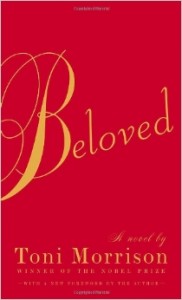 This week, CBLDF joined the National Coalition Against Censorship and other free speech advocates in asking the Virginia governor, Terry McAuliffe, to veto HB516, a bill that has disturbing implications for the freedom to read. Another letter was sent to the governor making the same demand. The authors of that letter? Students in Hanover County, Virginia.
This week, CBLDF joined the National Coalition Against Censorship and other free speech advocates in asking the Virginia governor, Terry McAuliffe, to veto HB516, a bill that has disturbing implications for the freedom to read. Another letter was sent to the governor making the same demand. The authors of that letter? Students in Hanover County, Virginia.
In early 2015, the Hanover County, Virginia, school board unanimously voted without discussion to implement a policy requiring teachers to notify parents before using any materials the district deems “controversial.” The policy revision was prompted after high school students watched the documentary Thomas L. Friedman Reporting: Searching for the Roots of 9/11. Some parents said that the film “expressed sympathy with terrorists.” The school board rejected a challenge to the documentary, but followed up with the new policy soon after. CBLDF joined NCAC in protesting the implementation of the policy.
In the wake of the controversy, students in the community formed Hanover Students for Freedom of Information and Learning (HSFOIL). As predicted, the policy had a chilling effect on educators in the district and has proven problematic. Since the implementation, the students of HSFOIL have been protesting the policy and sharing their perspectives on why it’s problematic at school board meetings and throughout the community. This week, the students expanded their activity from their local community to the state level to protest the passage of House Bill 516.
HB516 would require public schools to notify parents in writing of “sexually explicit content” and require schools to offer “nonexplicit” alternatives. It arose out of one parent’s attempt to ban Toni Morrison’s Pulitzer Prize winning novel Beloved from her son’s AP English class in Fairfax County. Crafted earlier this year by House Speaker William J. Howell, the bill passed through both houses of the General Assembly, and advocates used out-of-context excerpts from books like Toni Morrison’s The Bluest Eye during the debate of the bill. How “sexually explicit content” will be defined would be determined by the State Board of Education, not local communities. The definition could be so vague that almost any book, including the Bible and classics by William Shakespeare, Geoffrey Chaucer, Anne Frank, and more, could require parental notification.
The students in HSFOIL noticed the stark parallels between HB516 and what happened in their own community, so they decided to take action, drafting a letter to Governor McAuliffe. They shared their letter with NCAC. In their letter, they point our the value of the materials the bill could hinder:
Controversial materials greatly enhance a student’s education, they do not hinder it. Allowing a vocal minority of parents to shield students from controversial topics hurts no one but the students themselves. Our students should be well-rounded and intellectually competent in all great works of literature, despite the “evils” the pieces might hold. Evils will exist in the world no matter if we shield our students from them or not, but it is much better for students to experience them for the first time in a book, rather than in real life.
The students also warn about the chilling effect of the bill and the harm it may have on students’ education. You can read more of the letter on the NCAC website here.
Governor McAuliffe now has until April 12 to decide whether to veto HB516. We can only hope that he recognizes the damage the bill could do to students and the education system in Virginia, and sides with HSFOIL, NCAC, CBLDF, and other advocates for the freedom to read.
Help support CBLDF’s important First Amendment work in 2016 by visiting the Rewards Zone, making a donation, or becoming a member of CBLDF!